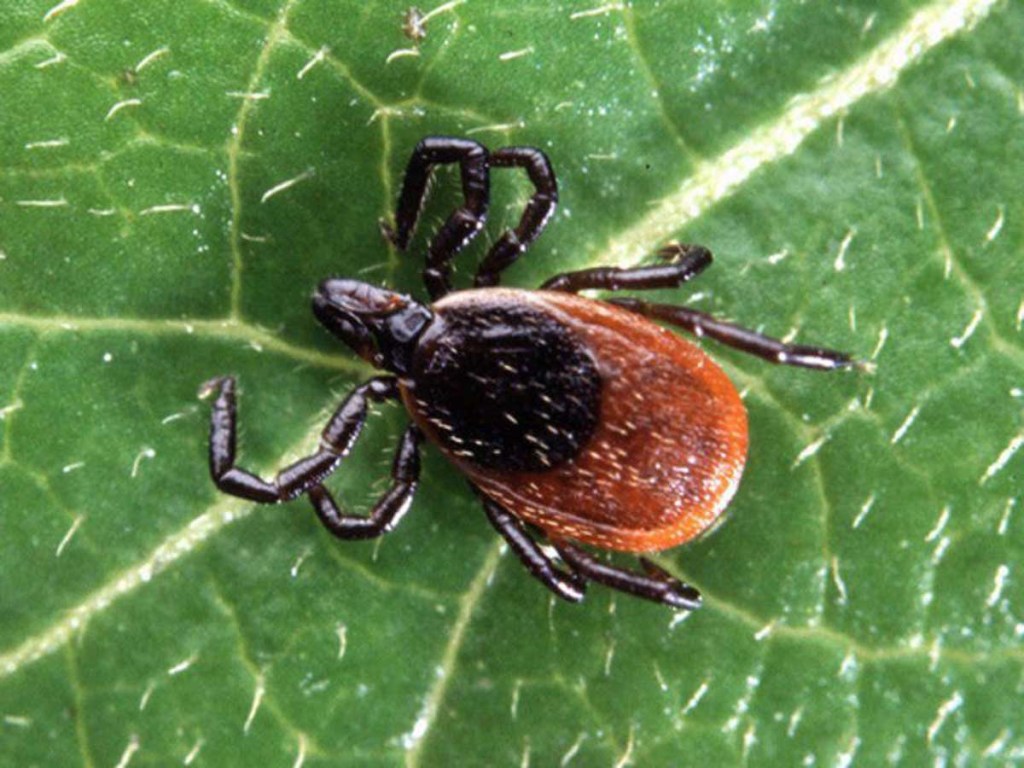Keeping ticks off you and your pets the natural way
Published 6:45 am Sunday, April 16, 2017

- A deer tick sits on a leaf. The blood-sucking insects spread Lyme disease and the rarer babesiosis, which can be fatal.
The warm winter may lead to nuisance pest making an even earlier appearance. One of these nuisance pest are ticks. Ticks are blood-feeding external parasites of mammals, birds and reptiles. They are also important vectors of disease-causing agents.
According to Dr. Xing Ping Hu, an Alabama Extension specialist and Auburn University professor of Entomology, there are two groups of ticks: hard-body and soft-body. The most common species in Alabama are hard-body ticks. These ticks have a shield on their backs and are tapered at the head end, which makes them easily recognizable by humans.
Unlike other blood sucking insects, such as bedbugs, fleas and mosquitoes, ticks attach firmly to their host, feed slowly and may go unnoticed for several days while feeding. When they feed, ticks grab onto a host, secrete an anesthetic and painlessly burrow into the skin with their mouth parts. Bites can cause skin irritations or even allergic reactions in sensitive people and pets.
“As a result, ticks transmit the widest variety of pathogens of any blood-sucking arthropod,” said Dr. Hu. Some human diseases from ticks include Lyme disease, ehrlichiosis, babesiosis, Rocky Mountain spotted fever, tularemia and tick-borne relapsing fever.”
If a tick attaches to you or your pet, remove it as soon as possible. Prompt removal reduces the chance of infection by Rocky Mountain spotted fever or Lyme disease.
Dr. Hu offers the following advice when removing ticks from a host
Shield your fingers with a paper towel, use tweezers or wear rubber gloves. Grasp the tick close to the skin, and with steady pressure, pull straight out.
Do not twist or jerk, as mouthparts may be left in the skin. Take care not to crush or puncture the tick during removal.
Do not use a hot match or cigarette to remove the tick as this may cause the tick to burst. Spotted fever may be acquired from infected pest body fluids that come in contact with broken skin, mouth or eyes.
Do not kill, smother or lubricate the tick with Vaseline, oil or similar material while the tick is still embedded in the skin. After removal, thoroughly disinfect the bite site, and wash hands with alcohol, an iodine scrub or soap and water.
Dispose of a live tick by submersing it in alcohol, placing it in a sealed bag or container, wrapping it tightly in a tape or flushing it down the toilet. Never crush a tick with your fingers.
Avoid touching the tick with bare hands because secretions can be infectious. Spotted fever can be acquired through self-inoculation into a small crack or cut.
After removal, thoroughly disinfect the bite site and wash hands with soap and water.
Test ticks for disease by contacting the Vector-borne Disease Program of the Department of Public Health. Place the tick in a small jar or zip-lock plastic bag, along with a few blades of green grass (to provide moisture). Store the tick in a cool place until delivery.
Ticks prefer shady, moist, long grasses to sunny dry, short grass lawns, Hu said. Homeowners should use natural and organic tick control.
If installed strategically, some plants may ward off ticks. Plants include: garlic, sage, mint, rosemary, pyrethrum, American beautyberry, Mexican marigolds, rose geranium and citronella.
Others tips:
Keep grassy and weedy areas trimmed and remove wood piles to reduce harborage for tick hosts.
Whenever possible, stay out of tick-infested areas, grassy pastures, prairies and wooded areas.
Restrict movement of your pets.
Wear long-sleeved shirts and long trousers with tight-fitting cuffs when entering tick-infested areas.
Wear light-colored clothing. Ticks are easier to see on a light background.
Use the Herbal Pet Collar or other less toxic products to protect dogs and cats, if the above methods are insufficient.
Apply organic pesticides such as EcoSMART organic mosquito and tick control for a quick knockdown or use Safer Mosquito and Tick Killer to areas where ticks hide.





